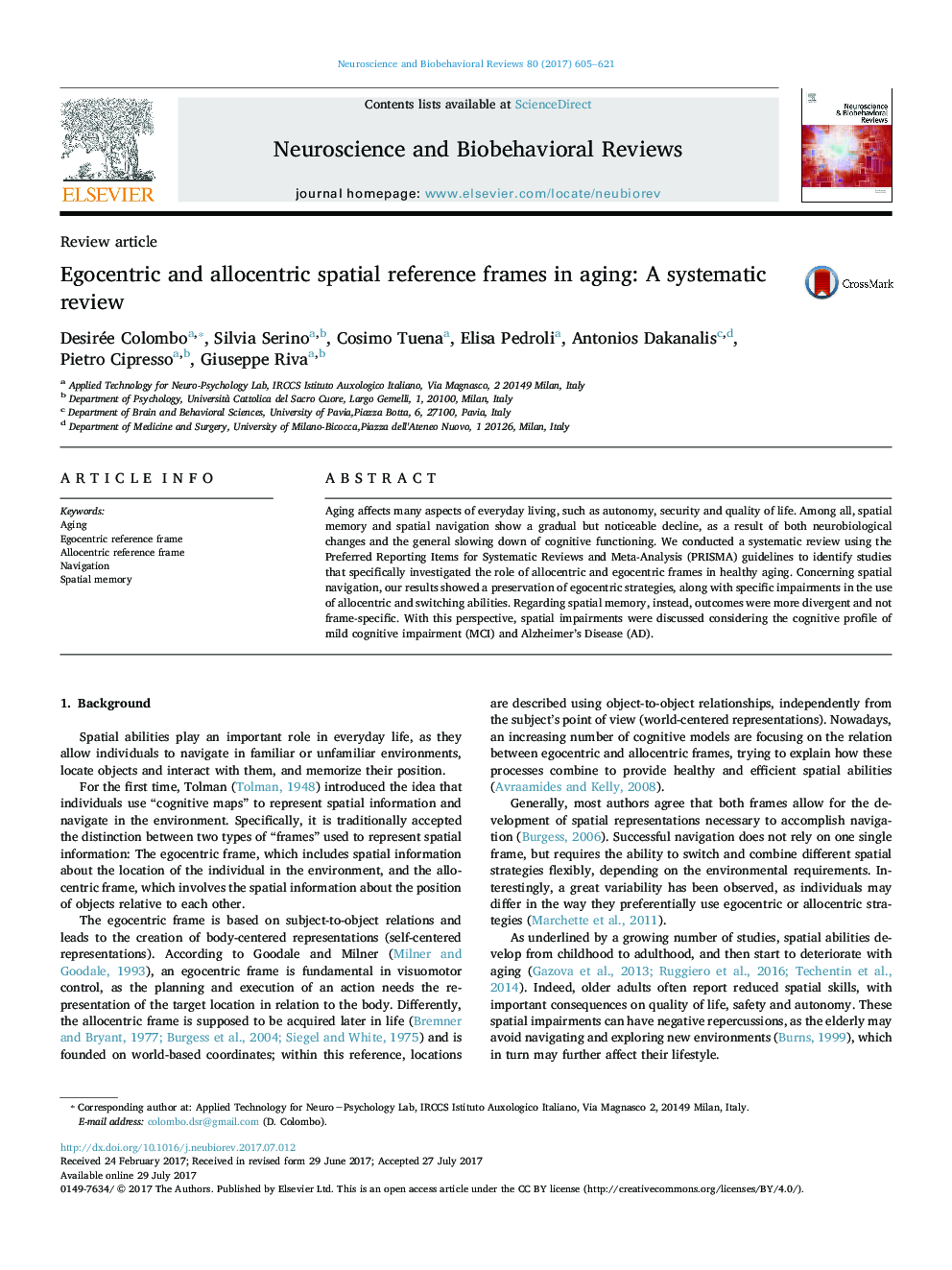| کد مقاله | کد نشریه | سال انتشار | مقاله انگلیسی | نسخه تمام متن |
|---|---|---|---|---|
| 5043468 | 1475292 | 2017 | 17 صفحه PDF | دانلود رایگان |

- Aging does not affect egocentric navigational strategies, whereas allocentric and switching abilities show a gradual decline.
- A general age-related weakening of spatial memory has been observed, even if not frame-specific;.
- Executive functions may play a critical role in age-related spatial difficulties.
Aging affects many aspects of everyday living, such as autonomy, security and quality of life. Among all, spatial memory and spatial navigation show a gradual but noticeable decline, as a result of both neurobiological changes and the general slowing down of cognitive functioning. We conducted a systematic review using the Preferred Reporting Items for Systematic Reviews and Meta-Analysis (PRISMA) guidelines to identify studies that specifically investigated the role of allocentric and egocentric frames in healthy aging. Concerning spatial navigation, our results showed a preservation of egocentric strategies, along with specific impairments in the use of allocentric and switching abilities. Regarding spatial memory, instead, outcomes were more divergent and not frame-specific. With this perspective, spatial impairments were discussed considering the cognitive profile of mild cognitive impairment (MCI) and Alzheimer's Disease (AD).
Journal: Neuroscience & Biobehavioral Reviews - Volume 80, September 2017, Pages 605-621